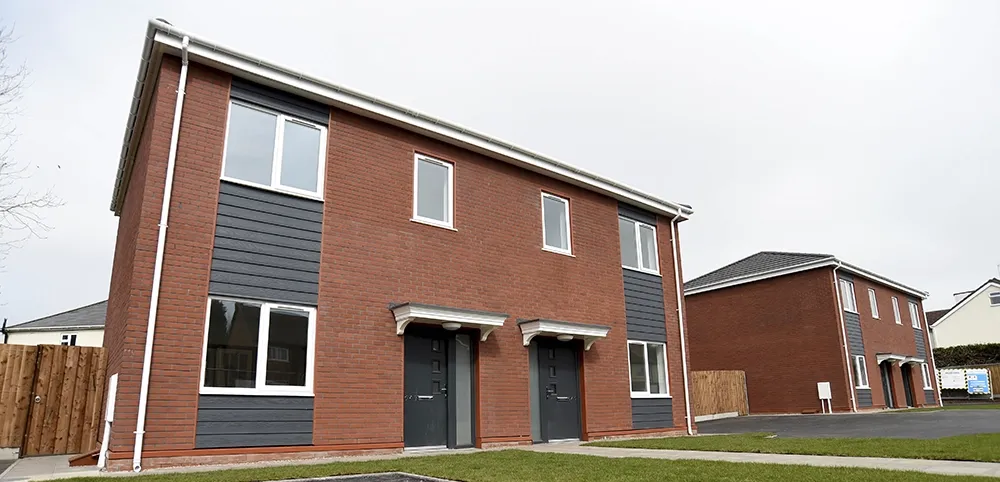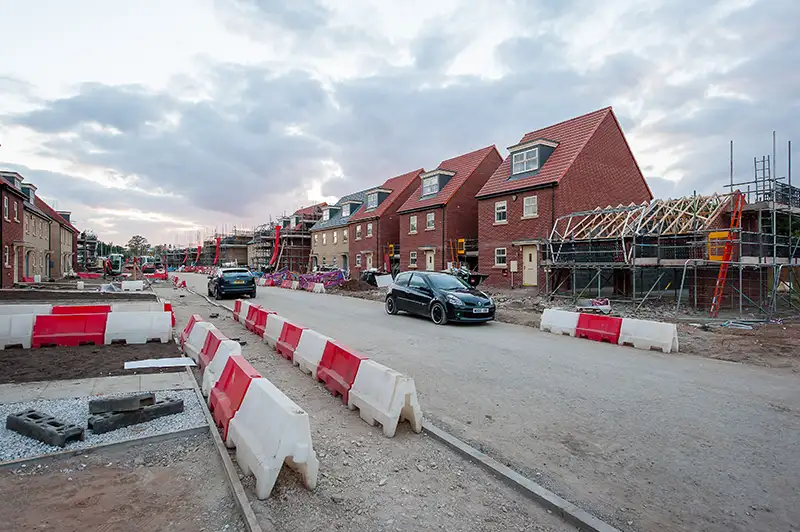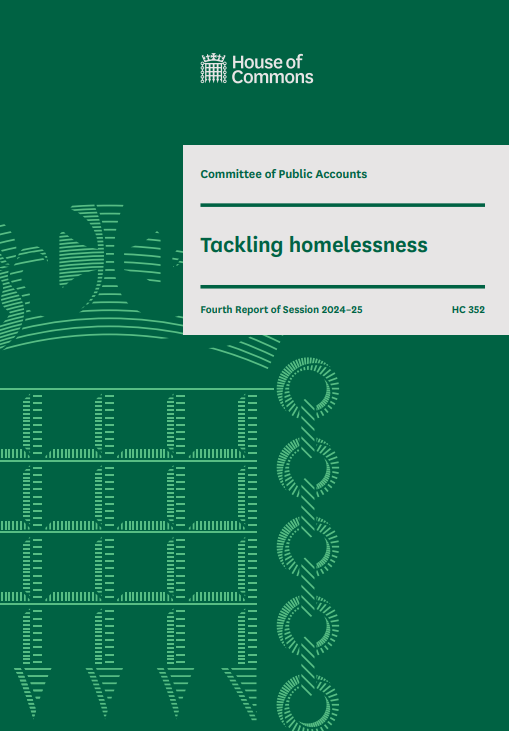CWAG Newsletter – January 2026
This Update includes the following

Government Publishes New Homelessness Strategy
In December 2025 the government published its long-awaited Homelessness strategy A National Plan to End Homelessness. This cross-departmental strategy aims to move from a system providing emergency relief to one that focusses on prevention through earlier and more effective interventions before the crisis point is reached.
However, given the scale of the current crisis, the immediate priority is to tackle existing backlogs, eliminating the use of unlawful Bed and Breakfast (B&B) for families, tackling poor quality temporary accommodation and reducing the number of long-term rough sleepers.
Longer term the plan has ambitious aims to move resources to focus on prevention, with earlier interventions and support to prevent homelessness before it happens. By tackling the underlying drivers of homelessness, the strategy aims to ensure that where homelessness occurs, it is a brief experience and not part of a repeating cycle.
The government’s plan to end homelessness has been developed around 5 Key Policy Pillars:
Pillar 1: Universal Prevention
This part of the strategy aims to tackle structural and systemic root causes of homelessness, in particular housing affordability and poverty. By improving housing supply and economic resilience the strategy will reduce the risk of homelessness for everyone.
Policy Measures include:
- Investment in social and affordable housing to increase supply and address current shortages
- A commitment to review social housing allocation policies to ensure available social housing reaches the people who need it most.
- Reform of the Private Rented Sector.
- Employment, training and earnings initiatives to build greater financial resilience.
- A full review of homelessness and supported housing funding including £124m new funding investment in supported housing services.
However, the strategy has been criticised as it does not address barriers to accessing the private rented sector caused by the ongoing freeze on LHA rates.
Pillar 2: Targeted Prevention
Here the strategy addresses the issue of support for people at higher risk of homelessness because of difficult life experiences or crises, for example care leavers, prison leavers, people being discharged from hospital, refugees and migrants. Targeted prevention involves tailored support to people who are more likely to face homelessness.
Policy Measures include:
- Cross- government targets to reduce the numbers of people leaving institutions into homelessness, for example prisons, hospitals, care settings and asylum accommodation
- A new ‘duty to collaborate’ compelling public services to work together to prevent homelessness for those at crisis point.
Pillar 3: Preventing Crisis
Moving funding away from crisis responses is central to the strategy, in particular helping people stay in their homes through early personalised interventions to prevent homelessness. A key issue for councils will be the resources required to deliver these new expectations and responsibilities.
Policy Measures include:
- A direction to local authority homelessness services to prioritise encouraging people to seek help as early as possible. There is recognition that this will require a culture change away from discouraging people from making homelessness applications.
- A new national target to increase the proportion of households who are supported to stay in their own home or helped to find alternative accommodation.
Pillar 4: Improving Emergency Responses
Here the focus is on improving temporary accommodation and making people’s experience better if they do become homeless. In the longer-term, the aspiration to shift from crisis response to prevention should reduce pressure in this area.
Policy Measures include:
- A target to end the use of B&Bs for families within this parliament, except for very short-term emergency use.
- Commitment spend £950million on a fourth round of the Local Authority Housing Fund (LAHF) enabling local authorities to purchase properties for Temporary Accommodation (TA) use.
- A Temporary Accommodation Toolkit to improve council sourcing and procurement of TA, and ensuring nightly paid TA is used appropriately.
- Applying the Decent Homes Standard and Awaab’s Law to TA (where possible).
- A new £30m Emergency Accommodation Reduction Programme to tackle poor practice including use of B&B and unsuitable out-of-area placements.
Pillar 5: Recovery and Preventing Repeat Homelessness
Here the focus is on ensuring people receive the right support, so don’t experience homelessness more than once. There is a new target to halve long-term rough sleeping within this Parliament.
Policy Measures include:
- A new £15m Long-Term Rough Sleeping Innovation Programme to enable councils with the greatest pressures to deliver more personalised and comprehensive support for people with complex needs.
- Introduction of Long-term Rough Sleeping Partnership Plans for areas with high long-term levels of rough sleeping.
- £37m funding for the Ending Homelessness in Communities Fund.
- Improving health access for people experiencing homelessness and rough sleeping, ensuring full alignment with the 10-Year Health Plan for England and the Men’s Health Strategy.
Planning Consultation – Overview of Proposed Reforms
The government has launched a consultation on a broad set of planning reforms including significant changes to the National Planning Policy Framework (NPPF). The changes are intended to support the government commitment to delivering 1.5million new homes in this Parliament alongside achieving economic growth and progressing plans to accelerate the shift to net zero. The main areas impacting housing providers are:
A permanent presumption in favour of suitably located development.
As part of a more rules-based approach to development, the presumption in favour of development would be applied to a much wider range of circumstances. The aim is to provide clarity on what developments are acceptable in principle in different locations, for example, making development of suitable land in urban areas acceptable by default.
Building homes around stations.
Default in principle support for suitable proposals that develop land around rail stations within existing settlements, and around ‘well-connected’ train stations outside settlements, including on Green Belt land. Minimum dwelling densities proposed around ‘well-connected’ stations to maximising opportunities for sustainable development and make the most of high levels of connectivity.
Driving urban and suburban densification.
A number of changes aim to support higher density development in sustainable locations, with good access to services. For example, support for redevelopment of low-density plots in urban and suburban areas, upward extensions and infill development – including within residential curtilages. Other measures support an overall increase in density within settlements.
Securing a diverse mix of homes.
Using the planning system to provide stronger support for rural, social and affordable housing, and setting clearer expectations for accessible housing to meet the needs of older and disabled people
Supporting small and medium sites.
A new category of ‘medium development’ is to be introduced linked to a range of policy and regulatory changes, to support a more streamlined and proportionate planning approach. The government is also considering the potential benefits and drawbacks of enabling developers to discharge social and affordable housing requirements through cash contributions in lieu of direct delivery.
Streamlining local standards.
To promote certainty for applicants and speed up local plan production quantitative standards in development plans will be limited to specific issues where local variation is justified. It is also proposed to limit duplication where issues are covered by the Building Regulations.
The consultation closes on 10th March 2026.

Tackling ‘No Access’ Challenges and Awaab’s Law
CWAG has joined with other partners in the council housing sector to commission research addressing growing concerns amongst social landlords around difficult ‘no access’ cases within the context of tightening legal duties, such as those introduced under Awaab’s Law. Two complimentary reports based on research undertaken by HQN are now available to download:
1. Preparing for Awaab’s Law: Progress by social housing providers
This report provides an overview and assessment of how councils and ALMOs have readied themselves for Phase 1 of Awaab’s Law, introduced in October 2025, and the pressures they anticipate as further phases come into force.
2. Opening the Door
This he first systematic examination of the causes of ‘no access’, exploring why access is becoming more challenging and the solutions emerging across the sector. The research reveals the scale of the challenge, with 60 per cent of respondents considering ‘no access’ a growing concern and provides a snapshot of a sector undergoing a significant cultural shift. Rather than treating ‘no access’ as a single tenant behaviour, landlords are recognising the various ways that residents may not – or cannot – allow access.
Of those who have analysed reasons for no access, over four in five cite tenant vulnerabilities, with more than half citing stigmatising issues such as hoarding. Around 40% identify landlord administrative issues. Against a post-Grenfell regulatory landscape, landlords are re-designing the way they work: strengthening communication, improving data on households and properties, investing in resident-centred service design, and building trust at the earliest point of contact.
The research highlights that there is no consistent definition of ‘no access’ across the sector and no single explanation for its growth. However, the consequences are shared. Missed visits delay safety work, escalate costs, and can trigger legal action – particularly under the new timescales required by Awaab’s Law.
To meet these pressures, the report findings show that all social housing organisations should:
- Adopt a clear, published definition of ‘no access’ and standardise recording, including missed appointments vs. escalated cases, to support consistent decisions
- Invest in better data and systems on homes and households, linking stock condition, repairs, compliance, complaints, satisfaction and access data
- Use proactive, resident-led communication by co-producing policy wording, letters, communications and using accessible terminology
- Train staff to use professional curiosity and work in smaller, more manageable patches
- Streamline and coordinate visits to reduce disruption and support Awaab’s Law timeframes
- Implement effective and informed triage with staff able to assess risk at first contact and use photos/video where appropriate
- Provide specialist support for complex cases through liaison roles, multi-agency working, and clear escalation routes.
To support this shift, the report also highlights that government should:
- Publish clearer Awaab’s Law guidance, especially around definitions and hazard thresholds
- Develop a simpler, nationally recognised legal pathway for cases where access cannot be secured
- Align national guidance on vulnerability and resident support, helping landlords respond consistently where vulnerability is the key barrier to access.
This research was commissioned by 5 partners – Local Government Association, National Federation of ALMOs, Councils with ALMOs Group, Association of Retained Council Housing, and Chartered Institute of Housing.
Recent Publications
Moving the deckchairs? Social housing allocations in England – December 2025
This report from Crisis, Heriot-Watt University, and the UK Collaborative Centre for Housing Evidence investigated how social housing is allocated by housing associations. The findings highlight that affordability issues are preventing access to social housing for some low-income groups in England.
Recommendations include increasing housing supply for social rent; removing barriers to accessing social housing for households on low incomes and for people experiencing homelessness; addressing unmet support needs; and improving communication flows between local authorities and housing associations.
‘You can’t bid because you’re in the red’ – December 2025
This report published by CIH, King’s College London and Oxford Brookes University sets out how housing related debt rules included in allocations policies act to limit the ability of domestic abuse survivors to find a safe home. The report provides guidance for social housing providers looking to improve support for domestic abuse survivors at risk of or experiencing homelessness.
Homelessness in England 2025 – Shelter – December 2025
This report sets out the scale of recorded homelessness in England on a given night in 2025 and includes a breakdown by region and local authority area.
Learning From Repairs – Housing Ombudsman – December 2025
This report urges housing providers to ‘see the person behind the repair’, emphasising the need for a more person-focused repairs service connecting the household’s circumstances to the condition of the property.
Meetings and Events
-
CWAG Inspection Feedback Meeting – Wednesday 14th January 2026 (10.00 – 11.30) Teams
The meeting will be a panel type discussion with representatives from councils that have recently been subject to an RSH inspection. The event is an opportunity to hear first hand from CWAG members on the inspection experience as well as key learning around the process.
-
CWAG Finance and Business Planning Meeting – Thursday 29th January 2026 (10.00 – 13.00)
Steve Partridge – Savills Director of Housing Consultancy will be leading this event for finance officers and others with an interest in HRA strategy and business planning.
To book places to attend either of the above events, please contact the CWAG Policy Officer.

















